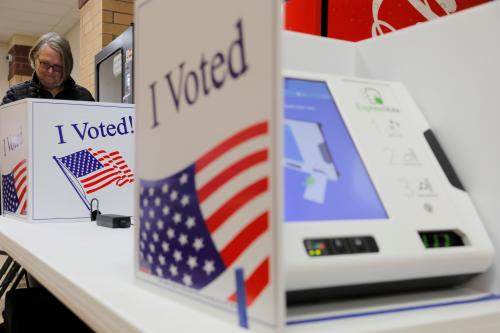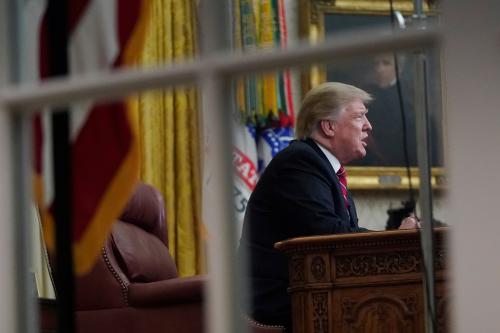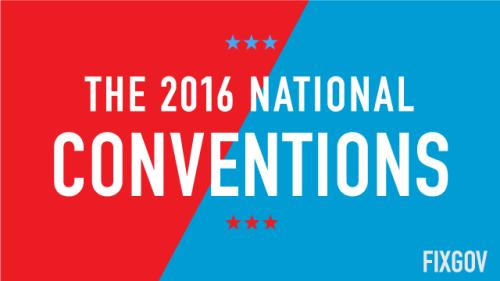Between last week’s Democratic National Convention and this week’s Republican National Convention, the presidential race has captured most of the recent election-related headlines. But a set of key Senate races will have significant consequences for the ability of former Vice President Joe Biden to govern if he defeats President Donald Trump.
If Biden wins the presidential election—which would make Harris, as vice president, the Senate’s tie-breaking vote—Democrats would need to gain, on net, three seats to take the majority. Because Senator Doug Jones (D-Ala.) is in danger of losing that race to Tommy Tuberville, it is likely that four Republican incumbents would have to lose for control of the chamber to turn over.
Ticket splitting between the presidential race and Senate elections has declined markedly over time; 2016 was the first year since the 17th amendment was ratified in 1913 in which every state with a Senate race elected a senator from the same party as the presidential candidate who won the state. The fate of these Senate candidates, then, will likely be connected to President Trump’s standing. Of the six most vulnerable Senate Republicans, two—Cory Gardner of Colorado and Susan Collins of Maine—are running in states that Biden is expected to win. Two more—Thom Tillis of North Carolina and Martha McSally of Arizona—are running in swing states. The final two—Joni Ernst of Iowa and Steve Daines of Montana—hail from states that are safe for Trump, though Montana has a strong recent history of electing Democrats statewide (including Daines’s Democratic opponent, Steve Bullock, as governor).
In total, six senators—Ernst, Tim Scott of South Carolina, Rand Paul of Kentucky, Marsha Blackburn of Tennessee, Tom Cotton of Arkansas, and Majority Leader Mitch McConnell of Kentucky—are on this week’s schedule. This count is down slightly from 2012 and 2016, when eight sitting Republican senators were on the convention agenda. Of these vulnerable GOP incumbents, only Ernst is scheduled to address the convention, using her time to address issues of importance to Iowans, like agriculture and aid for the recent derecho storm that swept across the state.
The fact that most of the senators key to maintaining the GOP’s majority aren’t speaking doesn’t mean, however, that what’s happening at the convention isn’t relevant to the conduct of their races; much has been made, for example, of whether Collins will formally endorse Trump. Winning these races—especially in the presidential swing states and those expected to go for Biden—requires attracting support from some independent and Democratic voters. The messaging coming from the convention makes clear that the top of the ticket will attempt to activate white voters by asserting that the suburbs are under threat from crime and violence. Republican incumbents may join Trump in openly campaigning on these themes (as well as on claims that Biden is a socialist)—and even if they don’t, they will have to answer for the president’s racist messaging.
The Republican senators who are on the schedule also illustrate one of the reasons it has been so difficult for Congress to complete work on another round of COVID-19 relief legislation: many individual Republican senators are looking beyond the November elections and, as a result, are pursuing a wide range of individual goals. Scott’s speech, for example, was widely described as “an audition for 2024,” and Cotton, who will speak on Thursday, also has presidential aspirations. Add in Republican senators who are preparing themselves to obstruct legislative priorities of a potential Biden administration by embracing a message of deficit reduction and differences in priorities between the Senate and White House and you get the stalemate that we’re currently seeing. If this congressional inaction persists into the fall, the vulnerable GOP senators will also have to answer for it on the campaign trail, even as this week’s convention fades into the background.
This work is licensed under the Creative Commons Attribution-NonCommerical-NoDerivatives 4.0 International License. To view a copy of the license, visit https://creativecommons.org/licenses/by-nc-nd/4.0/.
The Brookings Institution is committed to quality, independence, and impact.
We are supported by a diverse array of funders. In line with our values and policies, each Brookings publication represents the sole views of its author(s).








Commentary
Can Republicans hold the Senate?
August 26, 2020